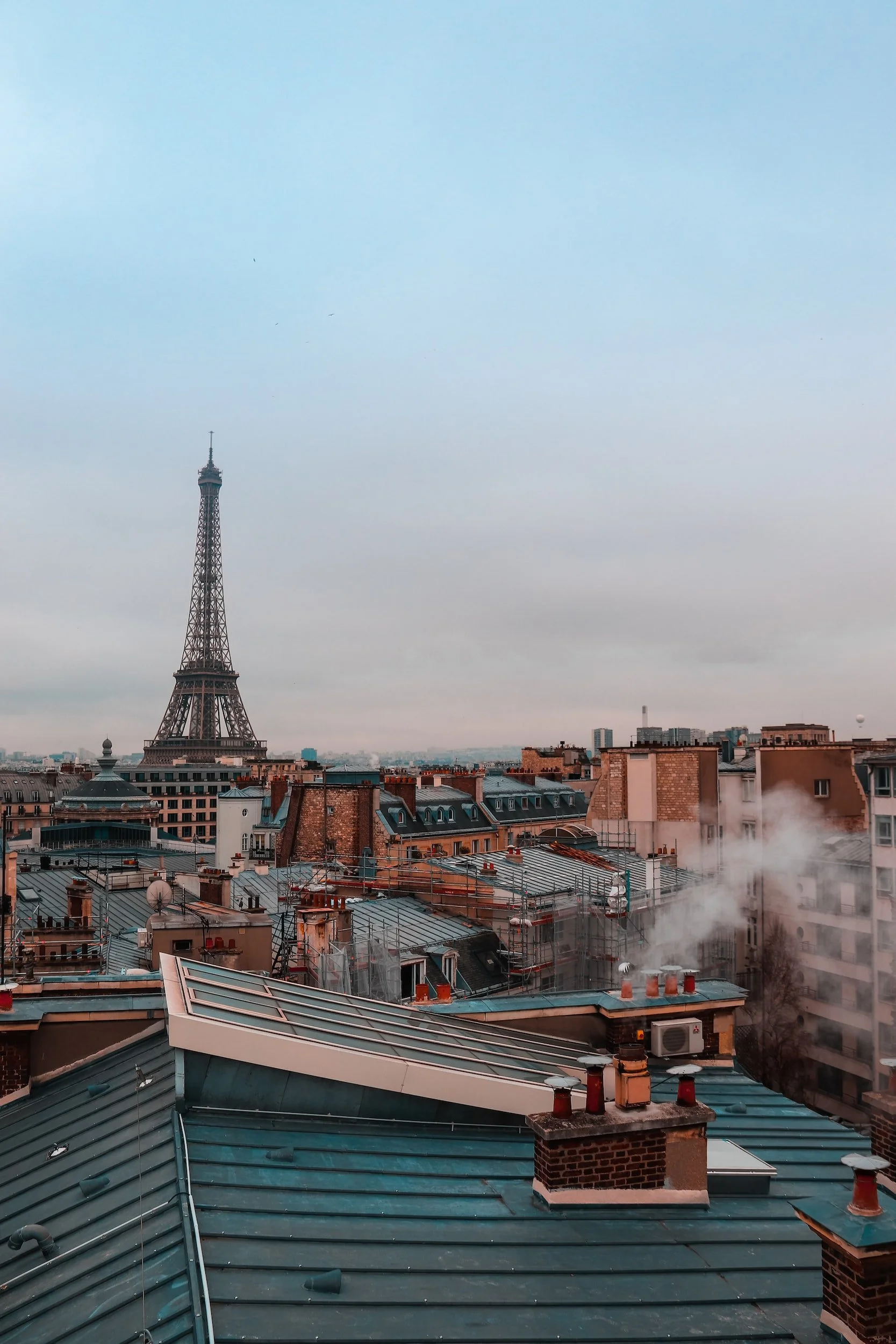Paris: In defence of the Spiritual
A creole band and crystal waves. In my ear actors played the role of the dead.
I arrived at Gard du Nord accompanied by Fanon and the sounds of Martinique.
The first time Fanon understood he was black and not French was when he encountered the racism of the metropole on the banks of the Reine. He understood the role of the police when he was beaten at a demonstration in Lyon. He understood the French saw Algerian Woman as the battleground; in desiring her unveiling, France sought to colonise all of Algeria. And he was one of the first to understand that colonialism precipitated a psycho-existential crisis; as we know, racism causes mental health problems.
It appears that to be conscious means to occupy a perpetual state of rage.
Which is why consciousness needs God and why the Left needs spirituality.
Thank goodness then for the company of that peculiar philosophical activist who looked up at me from my copy of An Anthology.
In Need for Roots, Simone Weil gives us obligations.
There are moral obligations and where they are not met we fall into a ‘vegetative existence…resembling death.’ She asks us to prioritise the needs of our souls as we prioritise our bodily needs and to not confuse them with ‘desires, whims, fancies and vices.’ As the soul’s poisons can for a time ‘give the impression of occupying the place of the former.’
Obligations are owed to the collective. She wrote of family and the state, to which we add the ummah, neighbour, orphan, widow, the poor, the sick and the wayfarer.
The first to consider are order and liberty. When dispensed in the name of religion, the irreligious view the former (order) as the antithesis of the latter (liberty).
But when dispensed with rahma in the path the All Knowing (Al Alim), The Restricter (Al Qabid) and The Extender (al Basit), order safeguards our most sacred freedoms.
God’s order is ever present:
‘We have in front of us a universe in which an infinite number of independent mechanical actions concur so as to produce an order, that in the midst of variations, remains fixed.’
And is synonymous with good and beauty:
‘We love the beauty of the world, because we sense behind it the presence of something akin to that wisdom we should like to possess to slake our thirst for good.’
Liberty is ‘one of the indispensable foods of the human’ but is tempered by rules imposed in the common interest emanating from an authority ‘loved and belonging to those placed under its direction.’ When Weil tells us that ‘having incorporated the rules into their own being, the prohibited possibilities no longer present themselves to the mind,’ we read this as submission. To be a Muslim is to submit to God. It is in the remembrance of Him, a scattered mind and troubled heart finds rest. And, we need to be signposted, we need to know what goodness looks like ‘when the possibilities of choice are so wide as to injure the commonwealth.’
In calling for obedience, we testify that Muhammed is the final messenger. ‘Those who command,’ (Muhammed), ‘obey in their turn’ and the rest follow suite ‘in the direction of a goal whose importance and grandeur can be felt by all’, (the eternal face of our Lord).
To obedience, we add, the need for a hierarchy that is symbolic as the ‘effect of true hierarchism is to bring each one to fit himself morally into the place he occupies.’
Responsibility, the need of the soul to see that ‘one is useful and even indispensable’ requires us to participate in the society we function within. Its opposite then is the loss of hope, a lack of agency in the current political climate. Where paths are closed, we continue to strive in His Name. Where our voices are silenced, we hold up our hands in prayer.
Equality is to mean that every man receives equal respect, as they are the same in the eyes of Allah, whatever their differences may be. It requires equality in opportunities, that education is free and that every child has the same prospects. ‘It would mean honouring each human condition with those marks of respect which are proper to it, and are not just a hollow pretence.’
Honour is an obligation, but, she confides is hypocritical in the hands of countries such as hers. France, first in its conquest of Arabs and then in the defamation of ‘their heroes and saints’ and finally the state in which they (the othered) are kept ‘is an affront to their honour.’
In a week that reminds us that state security apparatus from Jenin to Memphis only seek to defame and dishonour, it is up to us to honour the eternal obligations between ourselves, as they are owed.
'Everything without exception which is of value in me comes from somewhere other than myself, not as a gift but as a loan which must be ceaselessly renewed.’ (Simone Weil)
N Abida Ali

